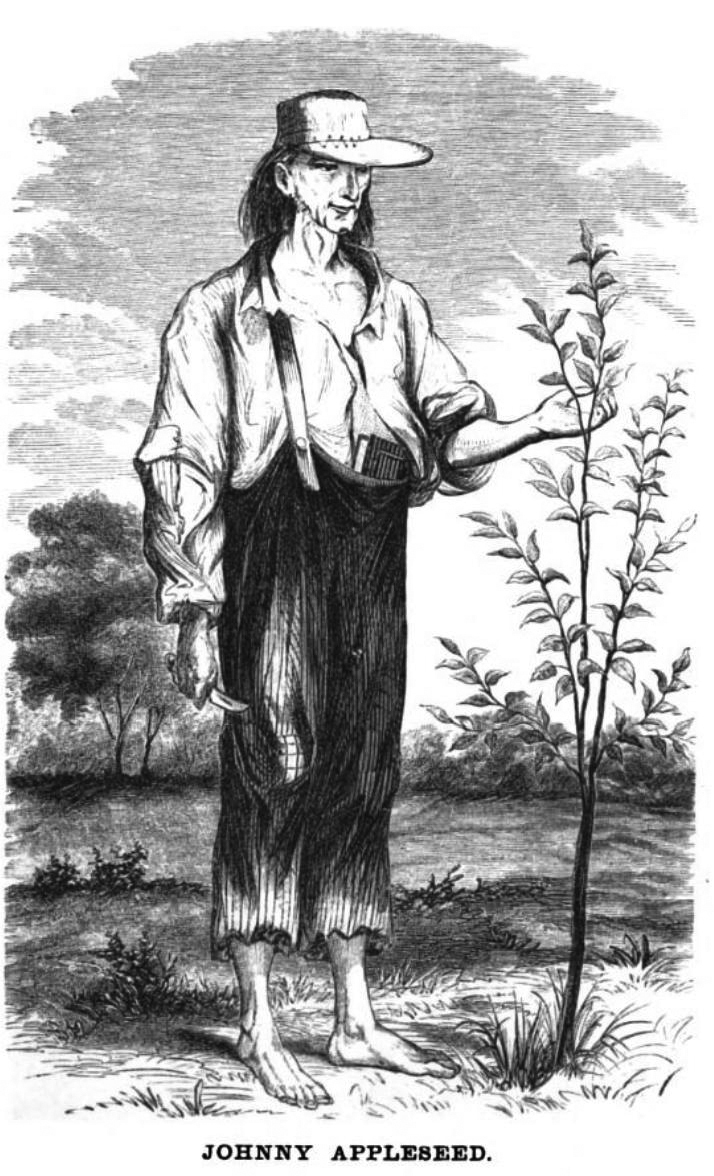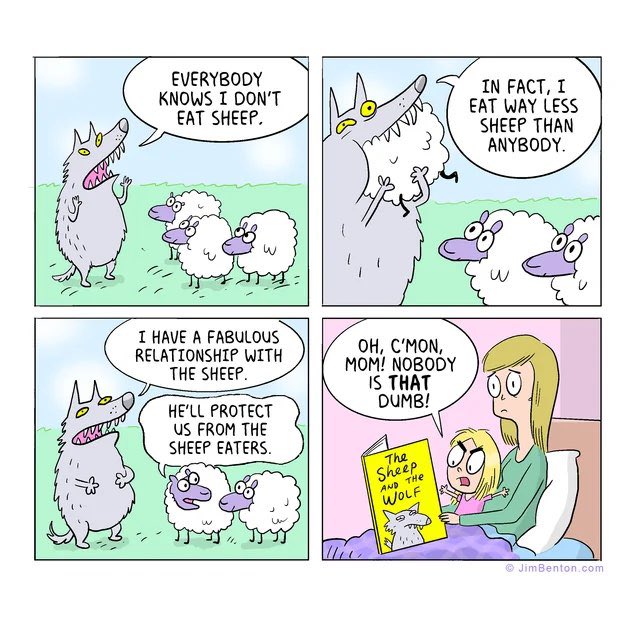-
Features
-
Friends of IIDBFriends Recovering from Religion United Coalition of Reason Infidel Guy
Forums Council of Ex-Muslims Rational Skepticism
Social Networks Internet Infidels Facebook Page IIDB Facebook Group
The Archives IIDB Archive Secular Café Archive
You are using an out of date browser. It may not display this or other websites correctly.
You should upgrade or use an alternative browser.
You should upgrade or use an alternative browser.
Morality in Bible stories that you don't understand
- Thread starter excreationist
- Start date
Thomas II
Contributor
Thomas II
Contributor
steve_bank
Diabetic retinopathy and poor eyesight. Typos ...
What a radical idea, a culture inventing myths and stories to address cultural issues and morality.Christians love to quote the Old English bible translations.
Thee, thou.
Why not Aramaic?
Among the Jews, Aramaic was used by the common people, while Hebrew remained the language of religion and government and of the upper class. Jesus and the Apostles are believed to have spoken Aramaic, and Aramaic-language translations (Targums) of the Old Testament circulated.May 9, 2023
Naaaaa...the bible stories are literally true.
I grew up with Johny Appleseed story. A guy wnadering ariud seing apple trees. Turns out he was actaully an etyrtn[reneur who syed orchrds for a percentage of profit.

Johnny Appleseed - Wikipedia
The popular image is of Johnny Appleseed spreading apple seeds randomly everywhere he went. In fact, he planted nurseries rather than orchards, built fences around them to protect them from livestock, left the nurseries in the care of a neighbor who sold trees on shares, and returned every year or two to tend the nursery. He planted his first nursery on the bank of Brokenstraw Creek, south of Warren, Pennsylvania. Next, he seems to have moved to Venango County, along the shore of French Creek,[9] but many of these nurseries were in the Mohican River area of north-central Ohio. This area included the towns of Mansfield, Lisbon, Lucas, Perrysville and Loudonville.[10]
Cherry Tree Myth
The cherry tree myth is the most well-known and longest enduring legend about George Washington.
Abe Lincoln is riddled with popular myths I grew up with.The cherry tree myth is the most well-known and longest enduring legend about George Washington. In the original story, when Washington was six years old he received a hatchet as a gift and damaged his father’s cherry tree. When his father discovered what he had done, he became angry and confronted him. Young George bravely said, “I cannot tell a lie…I did cut it with my hatchet.” Washington’s father embraced him and rejoiced that his son’s honesty was worth more than a thousand trees.1
Ironically, this iconic story about the value of honesty was invented by one of Washington’s first biographers, an itinerant minister and bookseller named Mason Locke Weems. After Washington’s death in 1799 people were anxious to learn about him, and Weems was ready to supply the demand. As he explained to a publisher in January 1800, “Washington you know is gone! Millions are gaping to read something about him…My plan! I give his history, sufficiently minute…I then go on to show that his unparalleled rise and elevation were due to his Great Virtues.”2 Weems’ biography, The Life of Washington, was first published in 1800 and was an instant bestseller. However the cherry tree myth did not appear until the book’s fifth edition was published in 1806
Watched a BBC show on Elizabeth I. The British narrative of an overwhelming military defeat of the Spanish fleet is largely myth. It was used ever since as a political talking point by British leaders to motivate the people.
Whoever an HJ may have been, the gospel Jesus is a myth.
The OT embellishes the glory and power of what was a small player in a region of much greater cultures, but then that is what cultural and political myths are created for. The Romans ere expert at myth propaganda.
Tharmas
Veteran Member
I'm picking up God vibrations; he's giving me excitations.I always understood "In the beginning was the word" as "In the beginning was VIBRATION..." (Sound)
Wooo bop bop - God vibrations bop bop
cue theremin
Thomas II
Contributor
I'm picking up God vibrations; he's giving me excitations.I always understood "In the beginning was the word" as "In the beginning was VIBRATION..." (Sound)
Wooo bop bop - God vibrations bop bop
cue theremin
https://scitechdaily.com/resonance-...ness-all-come-down-to-the-way-things-vibrate/
Thomas II
Contributor
I'm picking up God vibrations; he's giving me excitations.I always understood "In the beginning was the word" as "In the beginning was VIBRATION..." (Sound)
Wooo bop bop - God vibrations bop bop
cue theremin
Thomas II
Contributor
Oldest Gods known...
excreationist
Married mouth-breather
Gospel
Contributor
- Joined
- Oct 22, 2007
- Messages
- 7,837
- Location
- Florida
- Gender
- Ghetto Black Male
- Basic Beliefs
- Agnostic Atheist
One moral story I can't understand is Adam and Eve's. the moral of that story according to my wife's pastor are;
“You may surely eat of every tree of the garden, but of the tree of the knowledge of good and evil you shall not eat, for in the day that you eat of it you shall surely die.”
God brought us into a world where knowing good and evil is most important to God. God deliberately kept that knowledge from us & then punished us for our God given ignorance. Moral of that story? God set us all up for failure.
- The consequences of sin.
- The importance of obedience to God.
“You may surely eat of every tree of the garden, but of the tree of the knowledge of good and evil you shall not eat, for in the day that you eat of it you shall surely die.”
God brought us into a world where knowing good and evil is most important to God. God deliberately kept that knowledge from us & then punished us for our God given ignorance. Moral of that story? God set us all up for failure.
Politesse
Lux Aeterna
- Joined
- Feb 27, 2018
- Messages
- 16,627
- Location
- Tauhalamme/Laquisimas
- Gender
- nonbinary
- Basic Beliefs
- Jedi Wayseeker
That explanation is not one you would arrive at from reading Genesis itself- it comes from Paul's Letter to the the Hebrews, and is an attempt to resolve the conflicts between the traditional beliefs of Judaism and its reinvention as Christianity.One moral story I can't understand is Adam and Eve's. the moral of that story according to my wife's pastor are;
What I can't wrap my mind around is if god said
- The consequences of sin.
- The importance of obedience to God.
“You may surely eat of every tree of the garden, but of the tree of the knowledge of good and evil you shall not eat, for in the day that you eat of it you shall surely die.”
God brought us into a world where knowing good and evil is most important to God. God deliberately kept that knowledge from us & then punished us for our God given ignorance. Moral of that story? God set us all up for failure.
Politesse
Lux Aeterna
- Joined
- Feb 27, 2018
- Messages
- 16,627
- Location
- Tauhalamme/Laquisimas
- Gender
- nonbinary
- Basic Beliefs
- Jedi Wayseeker
Leave? The Roman Empire? They spanned much of the world that they knew, and reception of Jews in places they did know to be outside of it, like Persia, was no more welcome. I don't think leaving would have entered most people's minds as an option.I thought Paul's letter (and the whole point of the Jesus story) was to give Jewish Christians motivation to leave the Roman Empire.
Hebrews is not a strongly political work - it is very much an attempt to bolster the philosophical legitimacy of Christianity. To impress the Greeks, not eschew the Greeks. It's written in much more formal language than any of the other works in the Christian canon, and its topics are primarily metaphysical. An interesting pamphlet, but a pamphlet. Almost certainly not written by Paul, it should be noted.
Gospel
Contributor
- Joined
- Oct 22, 2007
- Messages
- 7,837
- Location
- Florida
- Gender
- Ghetto Black Male
- Basic Beliefs
- Agnostic Atheist
You're right that the Letter to the Hebrews was written in a way to impress the Greeks, but I doubt the overall message was "hey Jewish Christians, we must impress the Greeks!". Jewish Christians were struggling at the time, so I believe the letter was intended to address an audience that needed some motivation. Leaving the Roman Empire was out of the question, so yeah, I'm highly likely wrong about that. Maybe a better way to phrase my understanding of the letter is that it was an attempt to bolster the morale of Jewish Christians?
Thomas II
Contributor
The Complete and Concise History of the Sumerians and Early Bronze Age Mesopotamia (7000-2000 BCE)
Last edited:
bilby
Fair dinkum thinkum
- Joined
- Mar 6, 2007
- Messages
- 40,730
- Gender
- He/Him
- Basic Beliefs
- Strong Atheist
Perhaps more worrying, that passage you quote is a clear-cut and unequivocal lie by God.One moral story I can't understand is Adam and Eve's. the moral of that story according to my wife's pastor are;
What I can't wrap my mind around is if god said
- The consequences of sin.
- The importance of obedience to God.
“You may surely eat of every tree of the garden, but of the tree of the knowledge of good and evil you shall not eat, for in the day that you eat of it you shall surely die.”
God brought us into a world where knowing good and evil is most important to God. God deliberately kept that knowledge from us & then punished us for our God given ignorance. Moral of that story? God set us all up for failure.
Is lying supposed to be the kind of behaviour we would expect from the perfectly good source of all morality?
A&E eat the fruit, and not only notably fail to die that day, but go on to live a long and sufficiently fecund life to establish the entire human species.
And a brief six thousand or so years later, humanity finally developed the fire extinguisher, a device God badly needed for use on his divine pants.
Thomas II
Contributor
Thomas II
Contributor
Yup!Thomas II, do you fall asleep at night to videos like those? If so, we're alike.
Gospel
Contributor
- Joined
- Oct 22, 2007
- Messages
- 7,837
- Location
- Florida
- Gender
- Ghetto Black Male
- Basic Beliefs
- Agnostic Atheist
Perhaps more worrying, that passage you quote is a clear-cut and unequivocal lie by God.One moral story I can't understand is Adam and Eve's. the moral of that story according to my wife's pastor are;
What I can't wrap my mind around is if god said
- The consequences of sin.
- The importance of obedience to God.
“You may surely eat of every tree of the garden, but of the tree of the knowledge of good and evil you shall not eat, for in the day that you eat of it you shall surely die.”
God brought us into a world where knowing good and evil is most important to God. God deliberately kept that knowledge from us & then punished us for our God given ignorance. Moral of that story? God set us all up for failure.
Is lying supposed to be the kind of behaviour we would expect from the perfectly good source of all morality?
A&E eat the fruit, and not only notably fail to die that day, but go on to live a long and sufficiently fecund life to establish the entire human species.
And a brief six thousand or so years later, humanity finally developed the fire extinguisher, a device God badly needed for use on his divine pants.
It's crazier. The bible talks about the serpent as being more crafty than any other beast of the field that the Lord God had made. God must have known about the serpent before Adam was created because all the beast were created before Adam. So God made Adam a dumbass, and made the snake crafty. Then proceeded to tell Adam, he can eat from every tree in the Garden except the one that would help against the serpent.
The Adam and Eve story reminds me of playing with kids that make up rules on the fly just to win a game that has no rewards.



